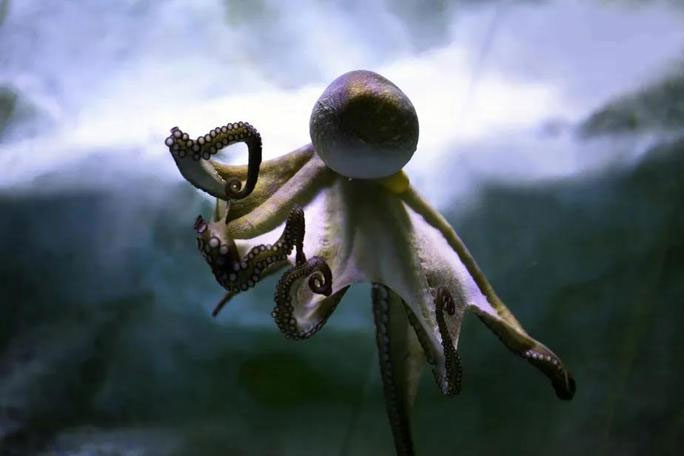According to SciTech Daily, new research has identified intriguing “jumping genes” that may explain the exceptional intelligence possessed by only two species on Earth: humans and… octopuses.
With an incredibly complex brain and remarkable cognitive abilities, octopuses have long been the subject of careful scientific study. This time, a team of scientists led by Dr. Remo Sanges from the International School for Advanced Studies (SISSA) in Trieste and Dr. Graziano Fiorito from the Anton Dohrn Zoological Station in Naples, Italy, has been searching for secrets within the octopus brain.

Octopus – (Photo: SCITECH DAILY).
The study found that similar “jumping genes” operate in both human brains and the brains of two octopus species, Octopus vulgaris and Octopus bimaculoides.
“Jumping genes” were discovered in humans when our genome was successfully sequenced to 45% in 2001, revealing special transposon sequences. Through mechanisms of copying and pasting or cutting and pasting molecules, these genes can move haphazardly from one location to another within the genome.
Some processes involving these jumping genes are particularly important in enabling humans to possess cognitive abilities, learning, and memory that far exceed those of other organisms on Earth.
The octopus brain is much like ours, rich in jumping genes. This may explain their unexpectedly high intelligence.
Octopuses are the subjects of numerous studies across various aspects, as they seem to belong to a different world compared to other animals.
A study published in Progress in Biophysics and Molecular Biology in 2018, conducted by 33 renowned biologists from around the world, concluded that octopuses are “hybrids” of some mysterious extraterrestrial organism that has endowed them with special intelligence.
The most reliable hypothesis suggests that their ancestor arrived on a comet that fell to Earth over half a billion years ago, interbreeding with primitive Earth organisms to produce the octopuses we see today. This also explains why octopuses seem to have “fallen from the sky” onto the evolutionary tree of Earth’s organisms, with a suspicious gap in the archaeological record.


















































